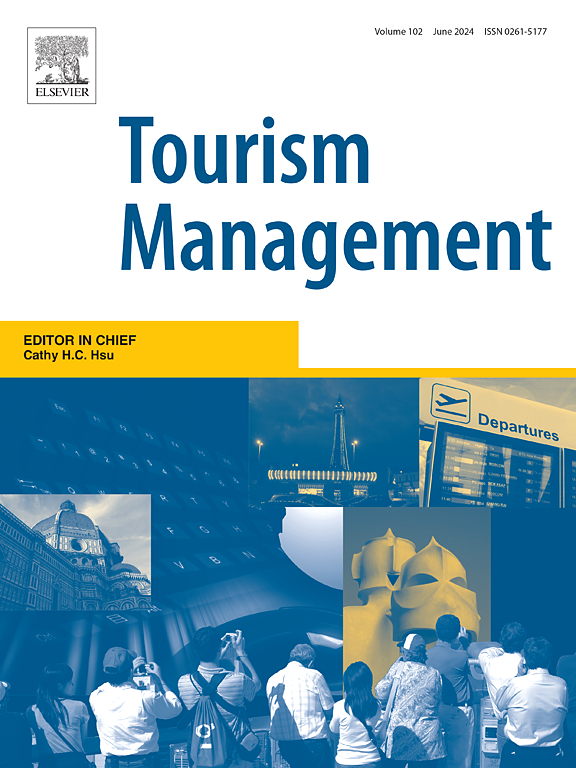葡萄酒旅游的存在层面:概念探索
IF 12.4
1区 管理学
Q1 ENVIRONMENTAL STUDIES
引用次数: 0
摘要
这篇概念性论文探讨了存在给定和葡萄酒旅游之间的理论关系,以加深对消费的独特人类方面的认识,同时为葡萄酒旅游引入新的可能性。结合存在主义哲学和旅游研究,我们提出了一个框架,将死亡的必然性、无意义、异化和自由这四个存在主义关注点与葡萄酒旅游体验联系起来。通过对这些经历如何解决存在困境的研究,无论是通过促进真实性保证还是焦虑掩盖,我们认为葡萄酒旅游是旅行者参与意义构建和确认其存在的媒介。这种观点认为葡萄酒旅游不仅仅是休闲,而是通过反思和意义创造来提供现实价值。通过利用存在主义的担忧,它促进了更深入、更有意识的旅行体验,并鼓励负责任地消费令人陶醉的物质。这种重构将葡萄酒旅游定位为一种有意义的活动,它解决了人类的核心关切,同时丰富了其在更广泛的旅游景观中的吸引力和意义。本文章由计算机程序翻译,如有差异,请以英文原文为准。
Existential aspects of wine tourism: A conceptual exploration
This conceptual paper explores the theoretical relationship between existential givens and wine tourism to deepen the knowledge of uniquely human aspects of consumption while introducing new possibilities for wine tourism. Drawing on existential philosophy and tourism research, we propose the framework that links the four existential concerns—inevitability of death, meaninglessness, alienation, and freedom—to wine tourism experiences. Through examination of how these experiences address existential dilemmas, whether through fostering authenticity-assuring or angst-masking, we argue that wine tourism serves as a medium for travelers to engage in sense-making and affirm their existence. This perspective frames wine tourism as more than leisure, offering eudaimonic value through reflection and meaning-making. By leveraging existential concerns, it promotes deeper, more intentional travel experiences and encourages responsible consumption of intoxicating substances. This reframing positions wine tourism as a meaningful activity that addresses core human concerns while enriching its appeal and significance within the broader tourism landscape.
求助全文
通过发布文献求助,成功后即可免费获取论文全文。
去求助
来源期刊

Tourism Management
Multiple-
CiteScore
24.10
自引率
7.90%
发文量
190
审稿时长
45 days
期刊介绍:
Tourism Management, the preeminent scholarly journal, concentrates on the comprehensive management aspects, encompassing planning and policy, within the realm of travel and tourism. Adopting an interdisciplinary perspective, the journal delves into international, national, and regional tourism, addressing various management challenges. Its content mirrors this integrative approach, featuring primary research articles, progress in tourism research, case studies, research notes, discussions on current issues, and book reviews. Emphasizing scholarly rigor, all published papers are expected to contribute to theoretical and/or methodological advancements while offering specific insights relevant to tourism management and policy.
 求助内容:
求助内容: 应助结果提醒方式:
应助结果提醒方式:


